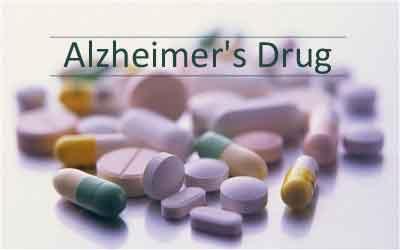- Home
- Editorial
- News
- Practice Guidelines
- Anesthesiology Guidelines
- Cancer Guidelines
- Cardiac Sciences Guidelines
- Critical Care Guidelines
- Dentistry Guidelines
- Dermatology Guidelines
- Diabetes and Endo Guidelines
- Diagnostics Guidelines
- ENT Guidelines
- Featured Practice Guidelines
- Gastroenterology Guidelines
- Geriatrics Guidelines
- Medicine Guidelines
- Nephrology Guidelines
- Neurosciences Guidelines
- Obs and Gynae Guidelines
- Ophthalmology Guidelines
- Orthopaedics Guidelines
- Paediatrics Guidelines
- Psychiatry Guidelines
- Pulmonology Guidelines
- Radiology Guidelines
- Surgery Guidelines
- Urology Guidelines
Combo therapy better than drug alone against Alzheimer's

Washington D.C. [USA]: Combining a specific care management program with a commonly-prescribed drug for Alzheimer's disease is better at turning back the clock on the ageing brain than medication alone, according to a recent study.
The research from a randomized trial developed at NYU Langone Medical Centre, which was presented at the Alzheimer's Association International Conference 2017 in London, found that the combination multiplies the medication's ability to improve daily function by about 7.5 times, stalling some of the disease's most damaging effects.
"Alzheimer's and dementia clinicians have known for some time that medication alone is not enough to stop disease progression," said principal investigator Barry Reisberg. "Our new research shows that a comprehensive, patient-centered care program brings significant benefits in daily activities, which are important to individuals with Alzheimer's and those who care for and about them."
Reisberg was the first author of a 2003 New England Journal of Medicine paper that was used in the U.S. Food and Drug Administration's approval of memantine, making it the first treatment for the later stages of Alzheimer's disease. Now, after more than 13 years of research, he and his team have shown that combining this drug with a comprehensive disease management system achieved significantly greater therapeutic effects than what was observed in the original study in terms of the difference between the medication and placebo groups.
With no significant new drug for Alzheimer's having been approved since memantine in 2003 - and a number failing clinical trials this year - the study authors argue that the time has come for the field to pay more attention to methods that can dramatically improve the impact of existing drugs.
The new study measured the added therapeutic benefits in patients taking memantine of also placing them in the Comprehensive, Individualized, Person-Centered Management program (CI-PCM). This system of care includes caregiver training, residence assessment, therapeutic home visits, and caregiver support groups, all developed and conducted by study co-investigator Sunnie Kenowsky.
In a 28-week, blinded, randomized controlled trial, 10 patient-caregiver groups enrolled in the CI-PCM were compared against 10 pairs receiving standard community care, which included a clinic visit, referrals to resources for caregiver training, care counseling, physical, speech and occupational therapy, medic-alert bracelets training, day care centers and support group programs. All patients were taking memantine.
The CI-PCM system used in the study was designed based on this retrogenesis theory, and includes caregiver training, "memory coaching" that teaches patients how to accomplish skills they lost, in combination with other supportive programs. This new research validates this hypothesis, said Reisberg, and shows that significant improvements are possible in some of the most disturbed and impaired community-residing people with Alzheimer's.

Disclaimer: This site is primarily intended for healthcare professionals. Any content/information on this website does not replace the advice of medical and/or health professionals and should not be construed as medical/diagnostic advice/endorsement or prescription. Use of this site is subject to our terms of use, privacy policy, advertisement policy. © 2020 Minerva Medical Treatment Pvt Ltd